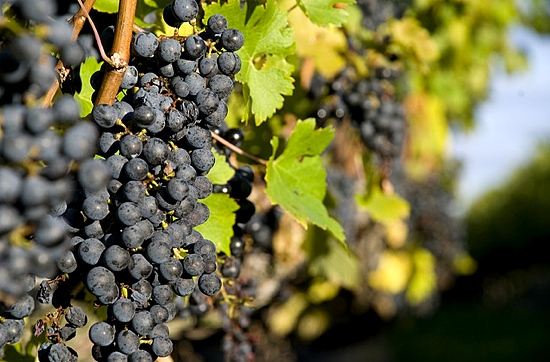Virginia wine sales set record high
Wineries sold over 520,000 cases, roughly 6.25 million bottles in the 2014 fiscal year.

Gov. McAuliffe announced yesterday that Virginia wine sales in fiscal year 2014 increased almost 2 percent from last fiscal year, setting a record.
According this Governor’s office, Virginia wineries sold more than 512,000 cases of wine, or about 6.25 million bottles, versus just over 511,000 cases in fiscal year 2013.
Virginia wine sales have increased by almost 26 percent since fiscal year 2010.
Here’s the release.
— ∮∮∮ —
Governor Terry McAuliffe today announced that sales of Virginia wine continued solid growth in fiscal year 2014 and reached another record level, increasing by almost 2% from fiscal year 2013. Virginia wineries sold more than 521,000 cases of wine, or approximately 6.25 million bottles, in fiscal year 2014 versus just over 511,000 cases in fiscal year 2013. Sales of Virginia wines have increased by almost 26% since fiscal year 2010.
“I’m pleased to see continued sales growth of Virginia wines,” said Governor McAuliffe. “This new record is a testament to our grape growers and winemakers, who are producing world-class wines and further establishing Virginia’s position as a top wine and wine tourism region. As we work with our private sector partners to build a new Virginia economy, Virginia’s wineries will play an even greater role in generating new revenue and job opportunities, especially in rural areas where most of our wineries are located, through increased sales and other tourism generated business.”
According to figures from the Virginia Department of Alcohol Beverage Control (ABC) and the Virginia Wine Marketing Office, total sales of Virginia wine contributed to more than $1.7 million in wine liter tax collections during the fiscal year ending June 30, 2014. The Virginia wine liter tax is applied at a rate of $3.60 per case of wine sold in Virginia. In addition, Virginia wine sales at wineries increased by 6.7% in fiscal year 2014 from the previous fiscal year. The increase indicates solid visitor traffic to wineries and Virginia wine events. However, with wine grape production flat due to several factors, including some early spring frosts, sales through other channels have flattened or decreased as wineries focus sales to meet growing demand at wineries.
“Our wine industry continues to be source of pride within Virginia’s diversified agricultural economy,” said Virginia Secretary of Agriculture and Forestry Todd Haymore. “From being recognized as a top wine producing region by globally-renowned wine critic Oz Clarke to having our wines sold in London, San Francisco, New York City, and Beijing, the last fiscal year saw both new acclaim and sales opportunities for the Virginia wine industry. Working in close partnership with our wineries and vineyards, as well as our colleagues in the Virginia Wine Marketing Office and Virginia Tourism Corporation, the Governor and I expect to see more growth in the future as we work to build a new Virginia economy. Our biggest challenge at this time is to get more grape vines planted to meet the increased demand for our products both at home and abroad”
Virginia currently ranks fifth in the number of wineries in the nation with more than 250. Virginia is also the nation’s fifth largest wine grape producer. According to a 2012 economic impact study, the Virginia wine industry employs more than 4,700 people and contributes almost $750 million to the Virginia economy on an annual basis. In addition, more than 1.6 million tourists visited Virginia wineries in 2013 according the Virginia Tourism Corporation. For more information about the Virginia wine industry, please visit the Virginia Wine Marketing Office’s website at www.virginiawine.org/ or call 804‐344‐8200.
According to a 2013 economic impact study conducted by the Weldon Cooper Center for Public Service at the University of Virginia, agriculture and forestry are two of Virginia’s largest industries with a combined economic impact of $70 billion annually. Agriculture generates more than $52 billion per annum, while forestry induces over $17 billion. The industries also provide more than 400,000 jobs in the Commonwealth. More information about the Weldon Cooper Center’s study can be found at http://www.coopercenter.org/node/2/publications/economic-impacts-agriculture-and-forestry-virginia-revised-2012.
Photo by LAmeetsDC
-
Recommend this
on Facebook -

Report an error
-

Subscribe to our
Weekly Digest





There are no reader comments. Add yours.